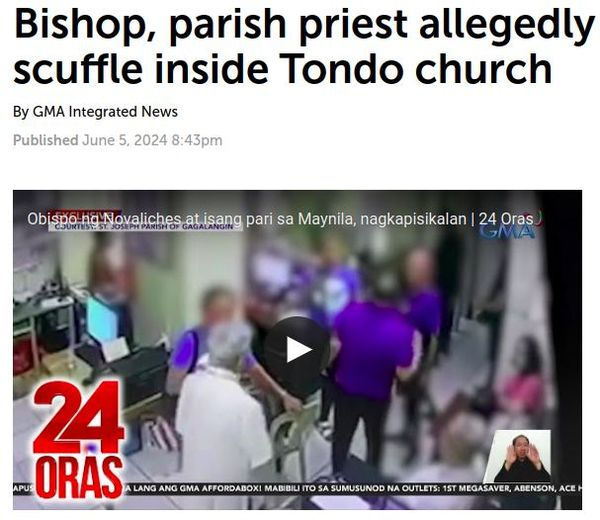How To Pray So That God Can't Say No
- josnardionzon5
- Aug 21, 2023
- 4 min read
Updated: Sep 18, 2023

In his recent Sunday Angelus homily, Pope Francis told his audience to keep praying because God, Jesus, cannot say no. Jesus cannot resist when we pray; He will answer us. Maybe not immediately, but later.
Pope Francis reflected on the Sunday Gospel reading (Mt 15:21-28) about the encounter between Jesus and the Canaanite woman. The woman wanted Jesus to heal her daughter who was tormented by a demon. At first, Jesus refused to help her, saying that He came for the lost sheep of Israel and that it was not proper to give the children's food to the dogs. However, the Canaanite woman was persistent, and Jesus granted her prayer. "O woman, great is your faith!" Jesus said, "Let it be done for you as you wish." And her daughter was healed.
Pope Francis taught us four ways to pray so that Jesus cannot say NO. Here they are:
1. BE PUSHY IN YOUR PRAYER
Pope Francis said that God is moved when we turn to Him and trust in Him, even when we can be "a bit pushy" with our petitions. That's what the Canaanite woman did when she asked for help from Jesus. She was persistent and pushy. "Please, Lord, even the dogs eat the scraps that fall from the table of their masters."
2. BE MORE CONCRETE IN YOUR PRAYER
Pope Francis was amaze that Jesus changed his mind or behavior because of the persistent request of the Caananite woman. Upon hearing the woman’s bold prayer and being faced with her concrete case, Jesus becomes even more sympathetic and compassionate.
Pope Francis said that this change of mind and behavior of Jesus is because “This is what God is like. He is love.” "The one who loves," the Pope said, "does not remain rigid in their own positions, but allows him or herself to be moved and touched. He or she knows how to change their plans."
3. BE FRANK WITH JESUS
Pope Francis said that the Caananite woman spoke with Jesus prankly. She "drew near, prostrated herself, insisted, took part in a frank dialogue with Jesus, and overcame every obstacle, just to speak with Him." "This is the concreteness of faith, which is not a religious label, but is a personal relationship with the Lord."
The Caananite woman, Pope Francis said, "is not fraught with theological gallantry, but with insistence; not with words, but with prayer." This is why God "does not resist when He is prayed to." Pope Francis reminds us when Jesus said, “Ask, and it will be given to you; seek, and you will find; knock, and it will be opened to you.'
4. PRAY WITH CONVICTION
Pope Francis asked his audience to honestly examine their faith. Knowing that Jesus was moved by the faith of the Caananite woman, let us reflect:
"Am I capable of changing opinion? Do I know how to be understanding and compassionate, or do I remain rigid in my position?"
In the Bible, Jesus almost always said “Your faith has healed you.” Albert Nolan in his book, Jesus Before Christianity, wrote: Faith “is a conviction that something can and will happen because it is good and because it is true that goodness can and will triumph over evil.”
In other words, it is “a conviction that God is good to humanity and that God can and will triumph over all evil.”
Pope Francis suggested that we ask: "What is my faith like? Do I stop at concepts and words, or is it truly lived with prayer and deeds? Do I know how to dialogue with the Lord? Am I insistent with Him? Or am I content to recite beautiful formulas?" In another occasion, Pope Francis said: Pray with courage, conviction, not mindlessly like a parrot.
THE PASTORAL PROCESS
Pope Francis not only offers us a path to unlock the power of prayer but also encourages us to reflect on how we interact with one another, particularly in our dealings with the poor and the needy.
Do you see the progression or the process? Initially, Jesus affirmed his exclusive mission for the people of Israel. He emphasized this to the Canaanite woman. Nevertheless, the woman persisted due to her desperate need to heal her tormented daughter. In response, Jesus underwent a change of heart and mind. He addressed the situation, recognized the woman's unwavering faith, and ultimately healed her daughter. The woman's specific plight prompted a transformation in Jesus' behavior.
Pope Francis consistently underscores the importance of openness through attentive listening to those in need, both within the church and society. He frequently critiques bishops and priests who rigidly prioritize defending orthodoxy (correct doctrine) and orthopraxis (correct practice) within the church. This often results in shutting the door to those in need. He urges them not to become fixated on doctrines or ideologies, but to heed the voices of those on the fringes of the church and society at large.
In our interactions with each other, we often demonstrate the opposite. We resist allowing reality or facts to alter our ideological biases and prejudices. This tendency is particularly evident in our political engagements. Once we've chosen to support a specific politician, we tend to overlook instances of corruption or controversial policies and statements. We refrain from criticism, displaying blind faith and unwavering loyalty. We even distort facts to align with our preconceived narratives.
Jesus, in his encounter with the woman in need, exemplified a willingness to let the concrete situation and reality reshape his ideology and prejudice toward non-Jews, whom the Jews of that time referred to as 'dogs'.



Comentarios